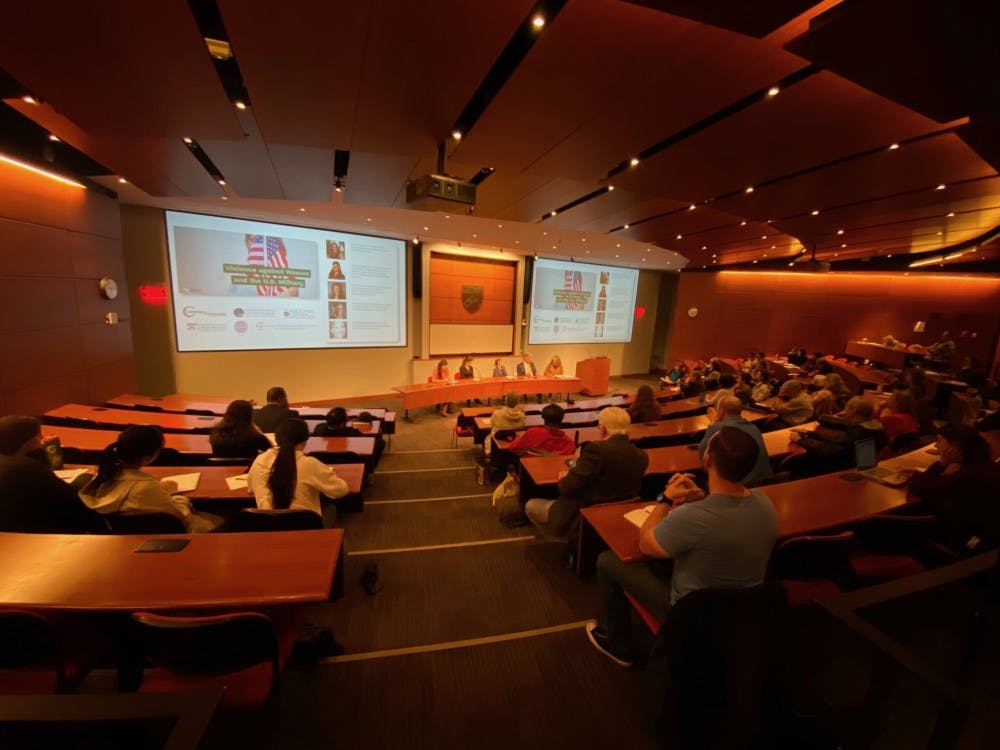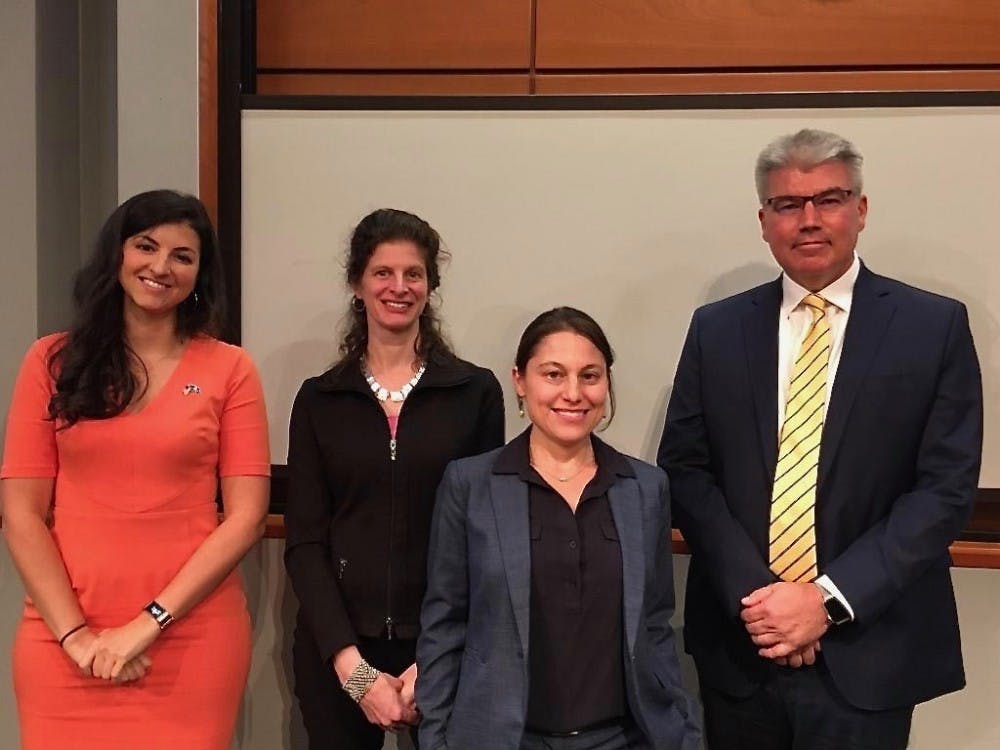
“There are multiple problems with [the military] system, in that it discourages disclosure regarding incidents occurring within the military,” said Susan Sorenson, executive director of the Ortner Center.
Credit: Pranav AnandThe Ortner Center on Violence & Abuse in Relationships hosted a panel discussion on the prevalence of violence against women in the military on Tuesday evening.
The “Violence Against Women and the U.S. Military” conference, hosted at Penn Law, featured a former lieutenant, a behavioral scientist, and numerous professors who have studied sexual assault in the military. The panel, moderated by History professor Kathleen Brown, discussed relevant policy research and highlighted the pervasiveness of the issue.
The panelists included Melissa Dichter, associate professor of Social Work at Temple University, Andrea Goldstein, former Special Operations Forces troop commander and Senior Policy Advisor to the Women Veterans Task Force, Emily Rothman, professor of community health sciences at Boston University, and Andrew Morral, author of congressional reports about sexual assault.
The event received support from the Provost’s Office, the Campaign for Community initiative, and the Trustees' Council of Penn Women. Susan Sorenson, executive director of the Ortner Center, said the center chose to organize the panel as part of Penn Law Public Interest Week, which invites speakers to discuss various social issues.
“There are multiple problems with [the military] system, in that it discourages disclosure regarding incidents occurring within the military,” said Sorenson.
Brown said the issue is relevant in the wake of President Amy Gutmann’s announcement of the 2019 nationwide college sexual assault survey, which saw Penn numbers change only slightly since 2015.

The “Violence Against Women and the U.S. Military” conference featured (left to right) Andrea Goldstein, Emily Rothman, Melissa Dichter, and Andrew Morral as panelists.
The panel topics included the risk of sexual assault in the military, the link between the #MeToo movement and the number of reported incidents in the military, and the similarities and differences between military and non-military sexual assault episodes.
“It’s different [from non-military sexual assault] because you’re trapped in your unit,” Goldstein said. “The person who’s perpetrating the assault is someone who’s supposed to guard your life. That’s a fundamental betrayal that you don’t find anywhere except for the military.”
Morral discussed his survey of over 150,000 members of the U.S. military, which showed that sexual harassment was viewed as highly prevalent in the military. Morral added that sexual assault presents itself in the form of hazing, and both men and women in the military tend to be affected by it.
“When you’re looking for sexual assault, you’re looking for something that, quite often, many people don’t know about," Morral said.
Dichter discussed her studies on sexual assault, comparing women who had served in the military and those who had not. Military service, she said, does not in any way protect a woman from experiencing intimate partner violence.
“People tend to think of women who have served in the military as people who are stronger than others – just because someone’s served in the Marine Corps doesn’t mean they’re not deserving of help," Dichter said.
Dichter also highlighted that assault victims in the military are faced with reporting incidents to higher-ranking officials who can possibly be the perpetrators themselves.
Buried in the bureaucratic structure of the military, Goldstein said, is a system that fails to support victims.
“They say treating sexual violence is a distraction from a mission," Goldstein said. "But people are the mission. And I’d like to see it treated with real seriousness."
The Daily Pennsylvanian is an independent, student-run newspaper. Please consider making a donation to support the coverage that shapes the University. Your generosity ensures a future of strong journalism at Penn.
Donate



